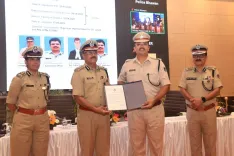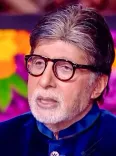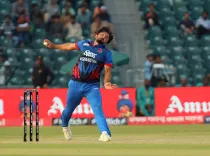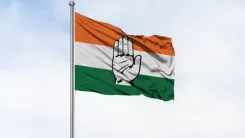Is the DNA of Hindus and Muslims Really the Same? Shiv Sena (UBT) Praises RSS Chief for Engaging with the Community
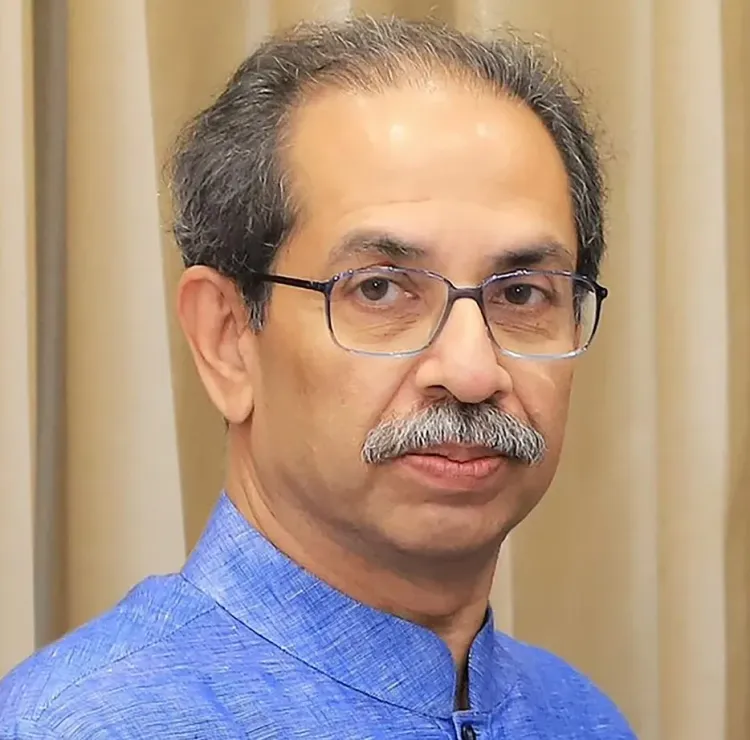
Synopsis
Key Takeaways
- Mohan Bhagwat's meeting with Muslim clerics signifies a potential shift towards unity.
- The Thackeray camp emphasizes the shared identity of Hindus and Muslims.
- Concerns about neo Hindutva activists creating divisions persist.
- The importance of addressing issues like casteism and fanaticism is highlighted.
- The historical contributions of Muslims to India's freedom struggle are acknowledged.
Mumbai, July 26 (NationPress) On Saturday, Shiv Sena (UBT) commended the Rashtriya Swayamsevak Sangh (RSS) sarsanghchalak Mohan Bhagwat for his recent meeting with over 70 clerics and Muslim intellectuals across the nation, emphasizing its significance at a time when “neo Hindutva” activists are attempting to sow discord within society under the pretext of Hindutva.
“In an era where certain factions aim to incite political unrest by misrepresenting Hindutva, the RSS chief's initiative is commendable as the DNA of Hindus and Muslims in Hindustan is identical. Thus, both groups must unite. We are all navigating the same vessel; if it capsizes, we all face the consequences. The Sarsanghchalak's duty is to fortify the nation, and for this, the RSS chief deserves recognition,” remarked the Thackeray camp in its editorial for Saamana.
They asserted that the RSS chief is aware of the struggles and contributions of Muslim intellectuals, particularly amidst the religious tensions being fostered by certain BJP factions targeting the Muslim community, a topic extensively discussed.
“However, will this effort by the RSS to bridge gaps with the Muslim community be appreciated by the new proponents of Hindutva within the BJP? Especially the neo-Hindutva activists in Uttar Pradesh, Assam, Maharashtra, and Delhi, who have recently stirred controversy in the name of Hindutva, will likely resist this. New cabinet cleric Nitesh Rane may be taken aback by Bhagwat's approach, potentially leading to his resignation, as the vitriol he has directed at Muslims in recent days makes Bhagwat's current stance unacceptable to such factions,” the editorial suggested.
The Thackeray camp accused these individuals of spearheading Hindu-Muslim divisions for political gain, inciting the Hindu populace to create divisions, and using slogans like 'Batenge to Katenge' and 'Ek Hain to Safe Hain' during assembly elections. They emphasized that in Maharashtra, in the last three months alone, individuals like Santosh Deshmukh, Mahadev Munde, and Harshal Patil have been killed, alongside 700 farmers who perished.
Referencing the Pahalgam attack, the Thackeray camp alleged that the murder was orchestrated by Pakistanis, yet the pro-Hindutva Home Minister Amit Shah has failed to apprehend the culprits.
“Prime Minister Modi appears to be in a state of Samadhi (deep meditation) and has remained silent on these pressing issues. Those spreading hatred are also those who are amending the Waqf Board Act. Muslim leaders are expressing their discontent with this. The BJP aims to sell the valuable lands of the Waqf Board to its affiliates. If this transpires, it will unveil yet another aspect of the BJP's conspiracy. Some so-called Hindutvaites in Maharashtra (implicitly referring to Eknath Shinde and his followers post the June 2022 rebellion) even went to a temple in Guwahati and engaged in the slaughter of buffaloes. Hinduism certainly has its flaws, but the thinkers and reformers who have challenged these shortcomings emerged from this very society. Their relentless critique has succeeded in dismantling the evils entrenched in Hinduism,” the editorial stated.
The Thackeray camp asserted that casteism, superstitions, and rituals remain prevalent today. Social reformers like Narendra Dabholkar, Govind Pansare, and Prof Kalburgi, who opposed such practices, were murdered by those steeped in ritualistic traditions. Hence, it is imperative for the national interest to eradicate fanaticism across all religions and societies.
The editorial critiqued the notion that people are starting to regard Narendra Modi as a divine incarnation, equating it with ritualism. “And then, these avatars of Vishnu awaken daily to propagate falsehoods, with the devotees applauding these lies. Such Hindutva is perilous and anti-national. By declaring that only we have the right to exist in India while excluding other religions from even having the right to vote, the names of Muslims, Christians, and Dalits are being systematically erased first from Maharashtra and now from Bihar. This should be a matter of profound reflection for Sarsanghchalak Bhagwat and the Muslim intellectuals,” it continued.
The Thackeray camp celebrated the Muslim community's involvement in India's freedom struggle, highlighting its pivotal role in nation-building.
They further noted that when Muslims participated in the revolution and became martyrs, the present-day BJP was not even in existence.
“Muslim soldiers have made sacrifices in every conflict with Pakistan. About 16 Indian citizens from Poonch and Rajouri were killed in an attack by Pakistan during 'Operation Sindoor'. They were also Muslims. If the names of Hamid Dalwai and Yusuf Meher Ali have not resonated with the new Hindutva proponents in Maharashtra, they should clear their ears. Shahir Amar Sheikh's legacy in the Samyukta Maharashtra movement continues to reverberate throughout Maharashtra, yet certain factions seek to ignite political discord by misrepresenting Hindutva. Nonetheless, the Neo Hindutva activists and Hindutva proponents must recognize the importance of both Hindu and Muslim communities in contributing to nation-building,” concluded the Thackeray camp.


